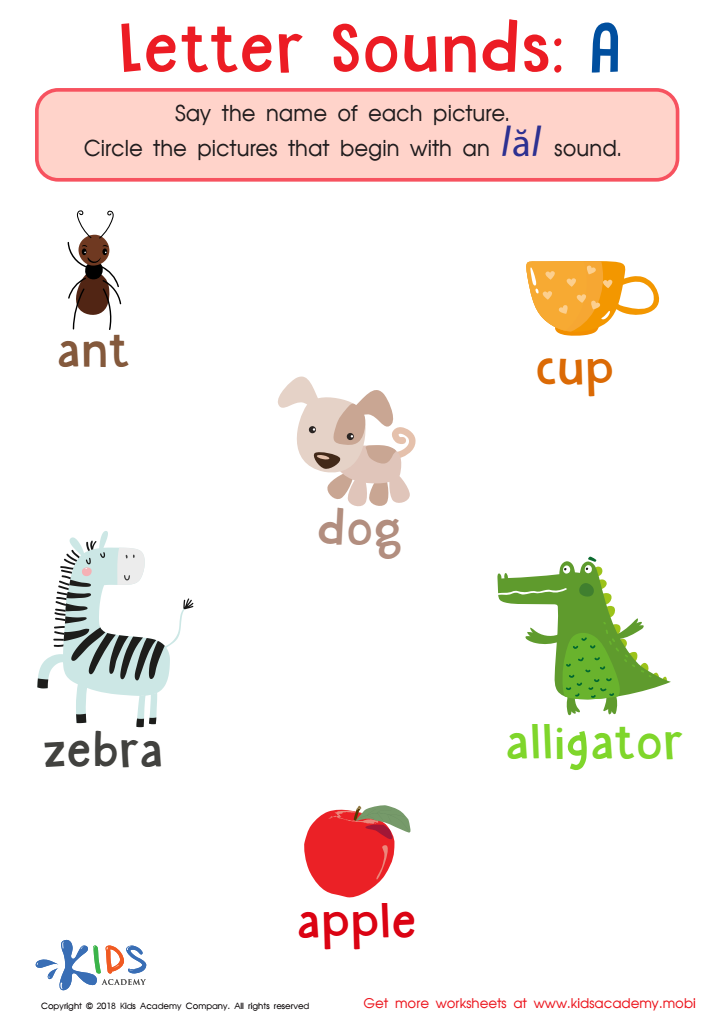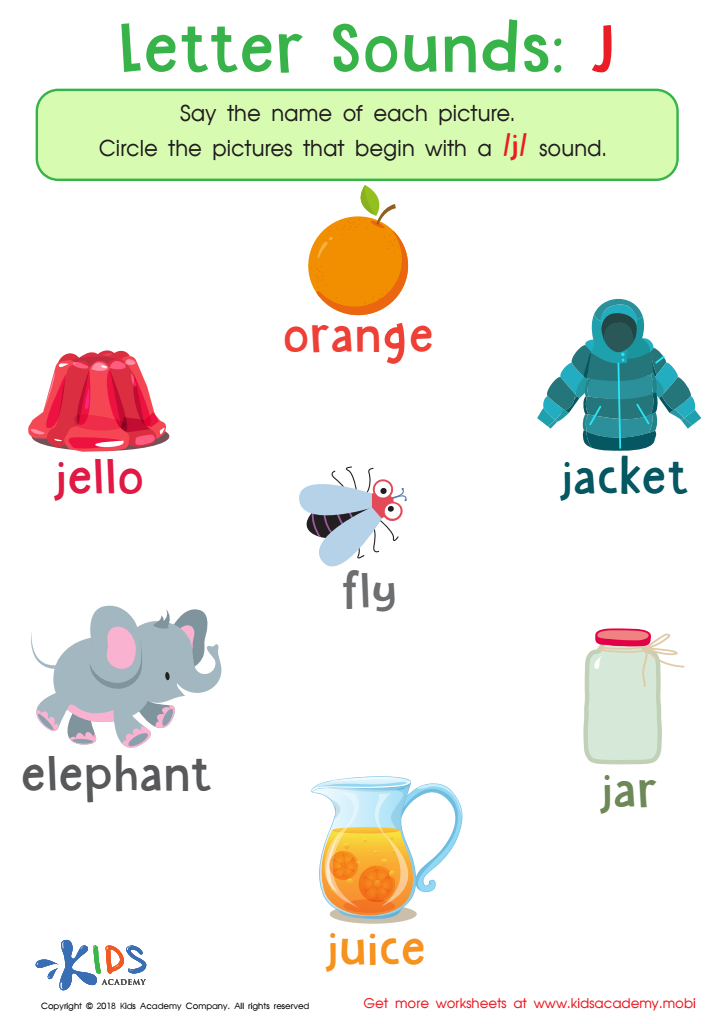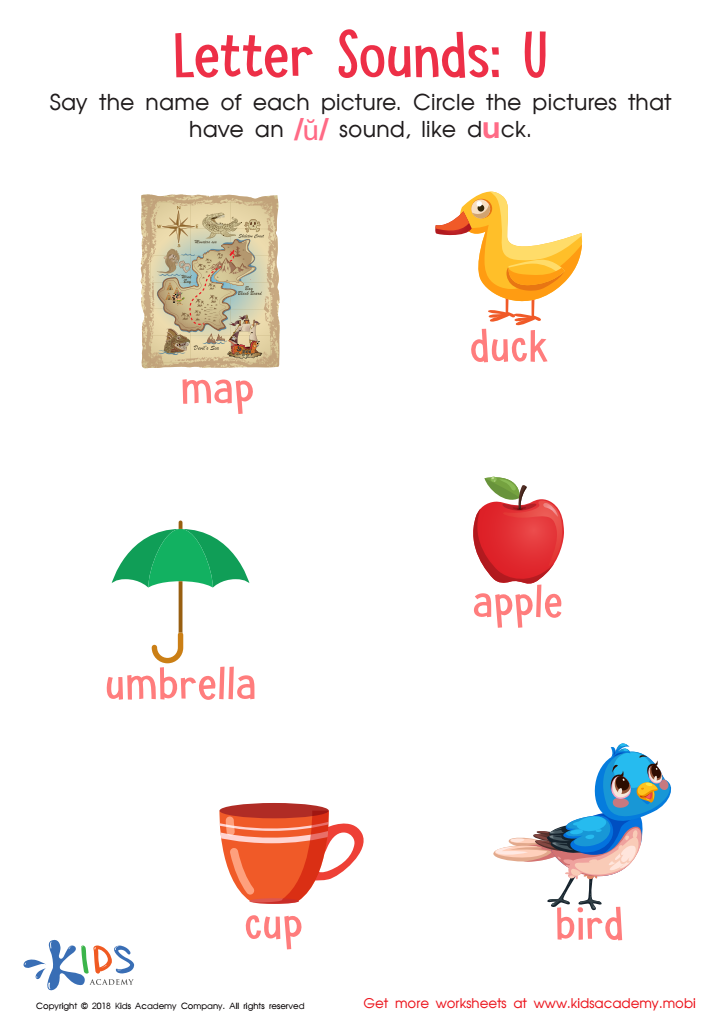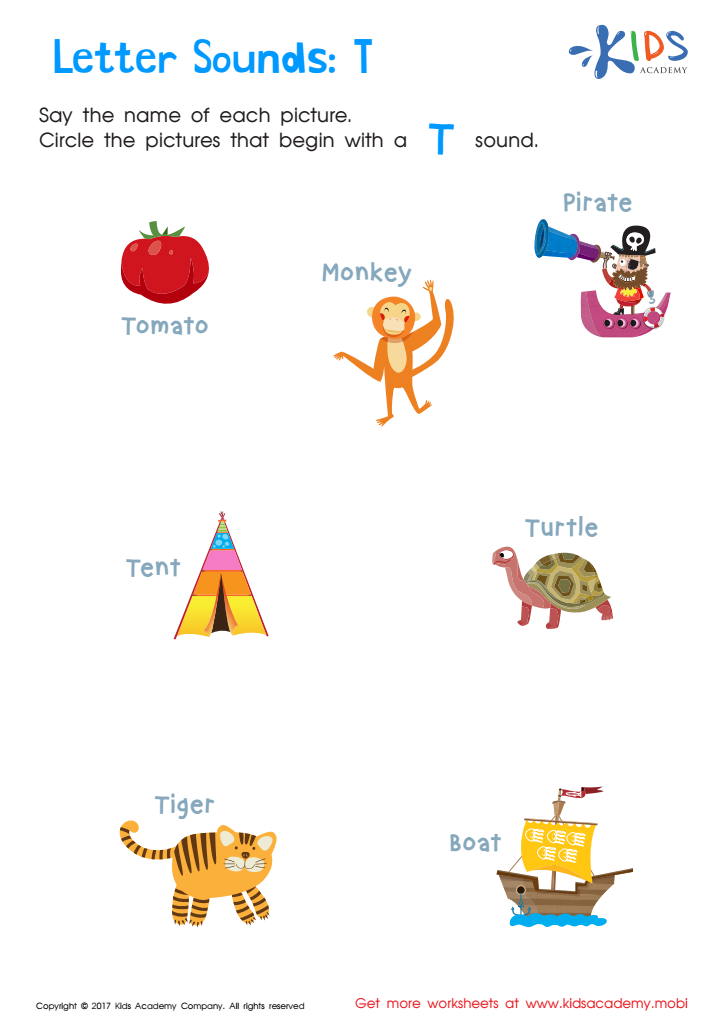Letter-sound correlation Letter Sounds Worksheets for Ages 4-6
4 filtered results
-
From - To
Discover our engaging Letter Sounds Worksheets designed for children ages 4-6, focusing on letter-sound correlation. These educational resources foster phonemic awareness by associating letters with their corresponding sounds. Ideal for early learners, these worksheets aid in developing foundational reading skills through interactive and visually appealing activities. Each sheet is crafted to enhance children's ability to recognize, reproduce, and use letter sounds effectively. Perfect for preschool and kindergarten settings, parents and teachers will find these worksheets a valuable tool to support their children’s journey in mastering the basics of reading and writing. Download now for an enriching learning experience!


Letter A Sounds Worksheet


Letter Sounds: J Printable Worksheet


Letter U Sounds Worksheet


Letter T Sounds Worksheet
Understanding letter-sound correlations is fundamental for young children, especially those aged 4-6, as it lays the foundation for early reading and writing skills. During these formative years, a child's brain is exceptionally receptive to linguistic input, making it the ideal time to introduce phonics.
Letter-sound knowledge helps children decode words, allowing them to read more fluently. When kids recognize that letters correspond to specific sounds, they can better decipher and even guess new words, boosting their confidence and independent reading abilities. This early literacy skill further supports vocabulary expansion, aiding overall language development.
Additionally, grasping phonics strengthens spelling abilities. Children learn to match sounds with letters, equipping them to write words accurately. This not only improves their written communication but also reinforces their understanding of language structure.
Moreover, familiarity with letter-sound correlations fosters cognitive development. It enhances memory, attention to detail, and critical thinking, as children analyze patterns and make connections.
Early mastery of phonetic principles gives children a head start academically. Parents and teachers play crucial roles in this developmental stage. By engaging kids with activities like reading aloud, playing phonics games, and practicing letter sounds, they create a positive and productive learning environment, ultimately setting the stage for lifelong literacy success.

 Assign to My Students
Assign to My Students















